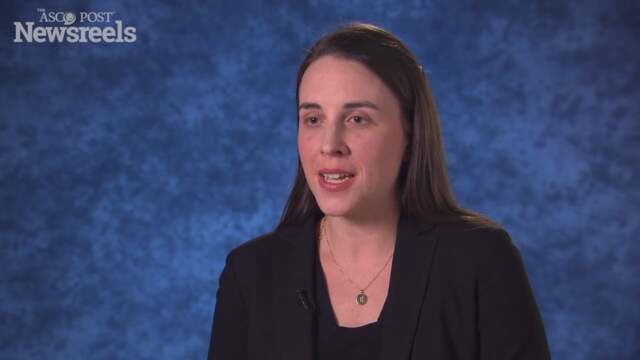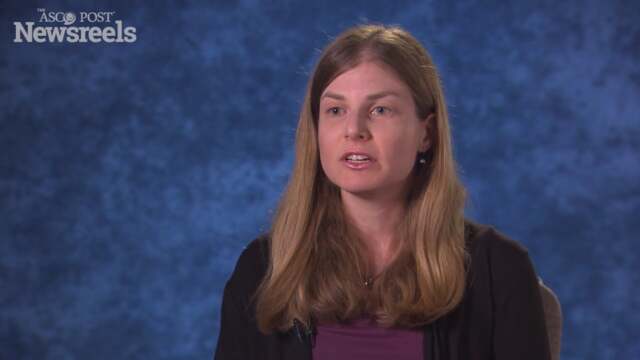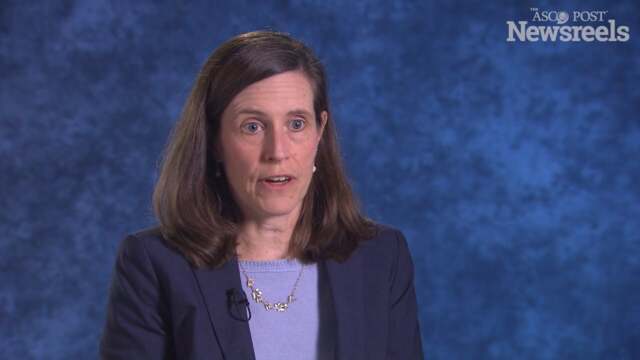Emily S. Tonorezos, MD, on Childhood Cancer Survivors and Late-Occurring Effects
2017 Cancer Survivorship Symposium
Emily S. Tonorezos, MD, of Memorial Sloan Kettering Cancer Center, discusses childhood cancer survivors and the protection from late-occurring anthracycline-related cardiotoxicity conferred by a RARG coding variant.
Allison Harvey, MPH, CHES, of George Washington University, evaluates preliminary outcomes among primary care and oncology providers who took part in the Cancer Survivorship E-Learning Series (Abstract 78).
Shoshana M. Rosenberg, ScD, MPH, of the Dana-Farber Cancer Institute, talks about ways to help young women move from active treatment to survivorship, based on findings from focus groups in which patients discussed their unexpected physical and psychological experiences after surgery (Abstract 180).
Lauren P. Wallner, PhD, MPH, of the University of Michigan, discusses her findings on the type of providers women prefer when it comes to handling survivorship care after breast cancer treatment and the need to clarify and discuss provider roles with patients (Abstract 99).
Sophia Kustas Smith, PhD, MSW, of Duke University, discusses study findings on an online, symptom self-management curriculum, known as www.reimagine.me, employed for breast cancer survivors with chronic pain (Abstract 182).
K. Holly Mead, PhD, of George Washington University, discusses specialized survivorship-specific programs, which are gaining prominence, with over 40% of cancer centers in her study providing this type of care (Abstract 1).



